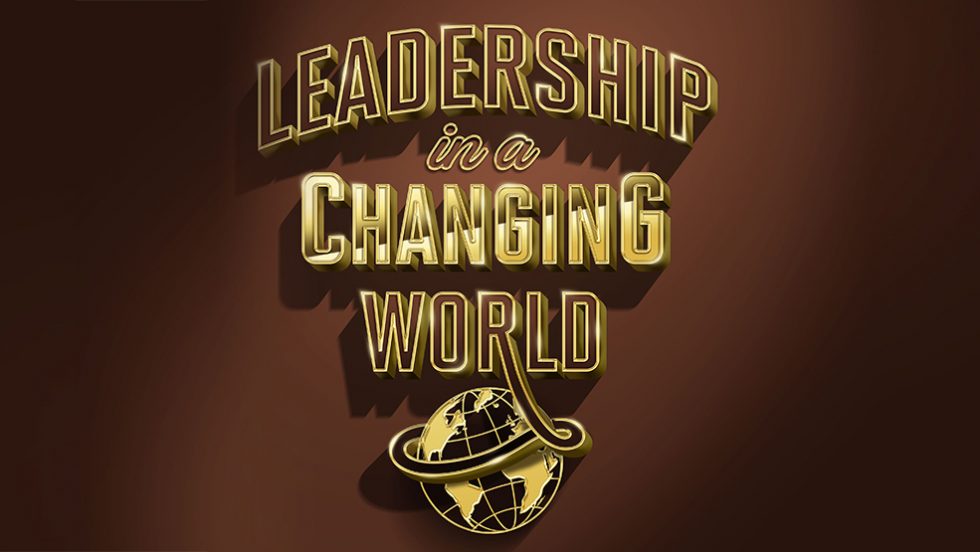
Industry-steering alumni share their insights and perspectives on the future.
While the world has been facing unprecedented changes, Adelphi’s alumni have been guiding their industries toward the future. These seven leaders tell us, in their own words, where they believe we’re headed in the worlds of national security, healthcare, education, banking, politics, international affairs and business, and what colleges and universities can do to prepare the leaders of tomorrow.
Banking
Kevin O’Connor ’84
Chief Executive Officer at Dime Community Bank
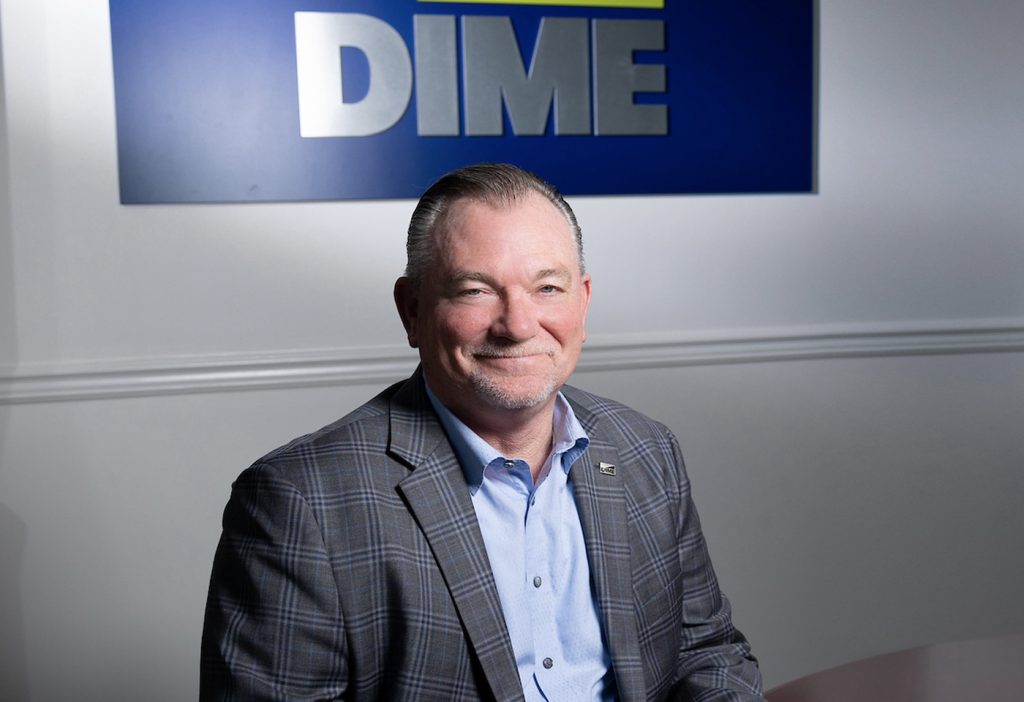
So much of what we do is through a digital interaction with our customers and we continue to see that evolve and influence the way we deliver products and services. As an institution, we continue to research and invest in technology that will allow us to better serve our clients. For example, the ability to transact using Venmo and Zelle are now preferred methods of doing business for many of our customers. Similarly, we’re looking at digital products to deliver loans quicker without the stack of paper that accompanies traditional loan applications.
We’re relying on technology to extract and synthesize information to reduce manual data entry, and are using artificial intelligence (AI) to analyze transactions to make sure the good guys get the money and not the bad guys. But, like many financial institutions, cybersecurity continues to be our most pressing challenge.
Despite the focus on digital, banking is still a personal business. The importance of the interaction between the banker and customer is still there. While our goal is to make that process more efficient, I think the idea that branches are going to go away is a fallacy. Our physical locations are not just billboards for us—they are the place where clients and their bankers partner to assess opportunities and solve problems.
As an industry, we still need to promote more women in leadership. To that end, we have launched a women’s leadership group designed to provide peer-to-peer mentoring and elevate our talent pool. Stepping back and looking at the big picture, I feel that the most important value for any leaders within our industry, as well as any other, is the ability to really listen and understand what’s motivating people.
Business
Thomas J. Donohue, MBA ’65, ’98 (Hon.)
Retired President and CEO of the U.S. Chamber of Commerce
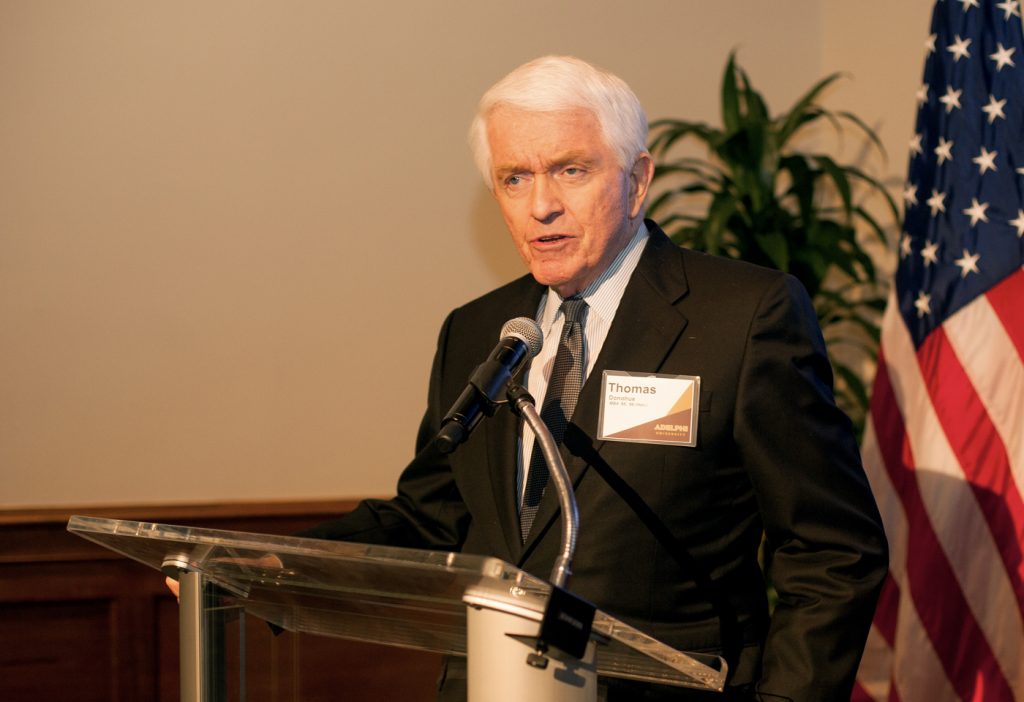
While the U.S. workforce is smaller than that of some other industrialized countries, we stand out in terms of our innovation and productivity. Even though we lost a lot of workers during the pandemic, we’ve been getting some of the workers back and we’ve picked up new workers. I don’t know exactly how jobs are going to change in the future, but they will perpetually change because of new technology, new social contracts, new opportunities in terms of where we get our workers from and what deals we have to do to get them. It’s a great time to go out and find a job if you have a good education because there’s more demand than supply.
Employers have to assure people about development, that we’re going to train you and prepare you not only for what you can do today, but also what you can do tomorrow. Part of that is for companies to support people who are willing to continue their education. Adelphi can prepare for or capitalize on all these changes by continuing to admit a cross section of people. You want a universal group of people with more depth and more diversity in what they bring to the party with a decent liberal arts education.
As we increasingly use robots in manufacturing, distribution and in the supply chain, we are losing teams, the long-standing practice of coming to work and learning from your colleagues. While we concentrate on teaching about computers and science, technology, engineering and mathematics (STEM), who are the people who are going to know our history so they know our value system as a nation and for themselves? Because it’s not just how many STEM people we have—and we do need them—we also need enough folks who understand our country and the implications of the things we do. I’m very concerned about that. That’s the core of how we get people good jobs and how we continue to attract people from around the world who want to come here and get those good jobs.
Education
Francine Conway, PhD ’99
Chancellor-Provost and the First Black Dean of Rutgers University–New Brunswick’s Graduate School of Applied and Professional Psychology
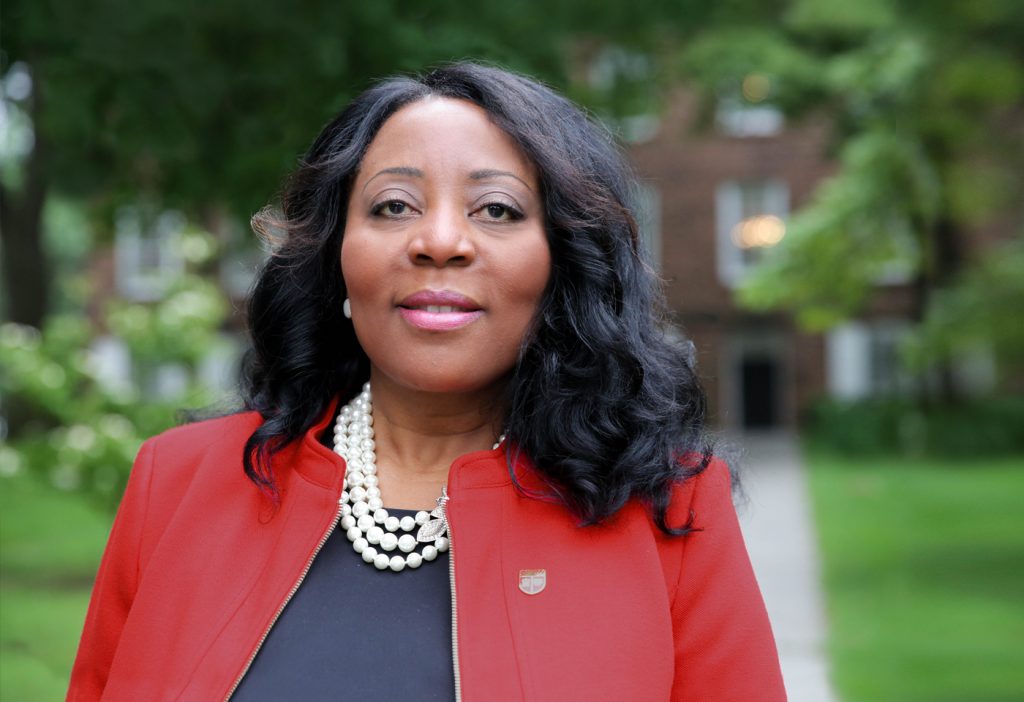
We’re gearing up to make our institutions a welcoming place for a more diverse student body and learners. That includes not only ethnically diverse students but also adult learners who want to get another degree or further their education, or people interested in improving their current careers. There’s a tension about the value of a broader liberal arts education, between are we here to educate our citizenry or are we here to prepare them for a job? We can do a better job translating and articulating how that broader education prepares someone to be an employee, a parent—whatever they’re going to be in the world.
The other imperative for institutions has to do with mental health and well-being. Students were coming to us anyway with preexisting conditions. It’s not like those conditions go away. And then with issues from recent years regarding their isolation, economic stressors, racial reckoning and social justice, we know now that we can’t opt out of thinking about our students’ well-being. A big part of what I’m doing on my campus is trying to address our community from a larger public health perspective and looking at what we can do to support and create an environment where students—and faculty and staff—can thrive.
Institutions of higher education have a responsibility to prepare students to be good citizens of the world. The right for academic institutions to express their views on both sides, for institutions to uphold academic freedom, is really being challenged in a public way. Institutions are going to have to decide what their point of view is going to be. It’s not that they have to pick left or right. They have to pick academic freedom; that everyone has a right to study and explore the disciplinary areas or perspectives that they bring. That’s what makes us an institution for higher education. We have to hold to those ideals. Institutions of higher education become a microcosm of the world. It’s a metaphor for how we can all live, work and thrive together.
We are at a point in higher education where the pandemic has given us an opportunity to challenge preexisting notions, to push boundaries, to think about different ways of delivering education. People thought they could never teach or deliver student support services using a virtual environment. But there are some students who psychologically just don’t learn well through an online environment. We need to meet their needs plus the needs of students for whom maybe eliminating that commute works better for them as they have to work to pay for college. But at least now we know we can solve the problem.
Healthcare
Patrick M. O’Shaughnessy, DO, MBA ’13, FACEP
President and Chief Executive Officer for Catholic Health Services of Long Island
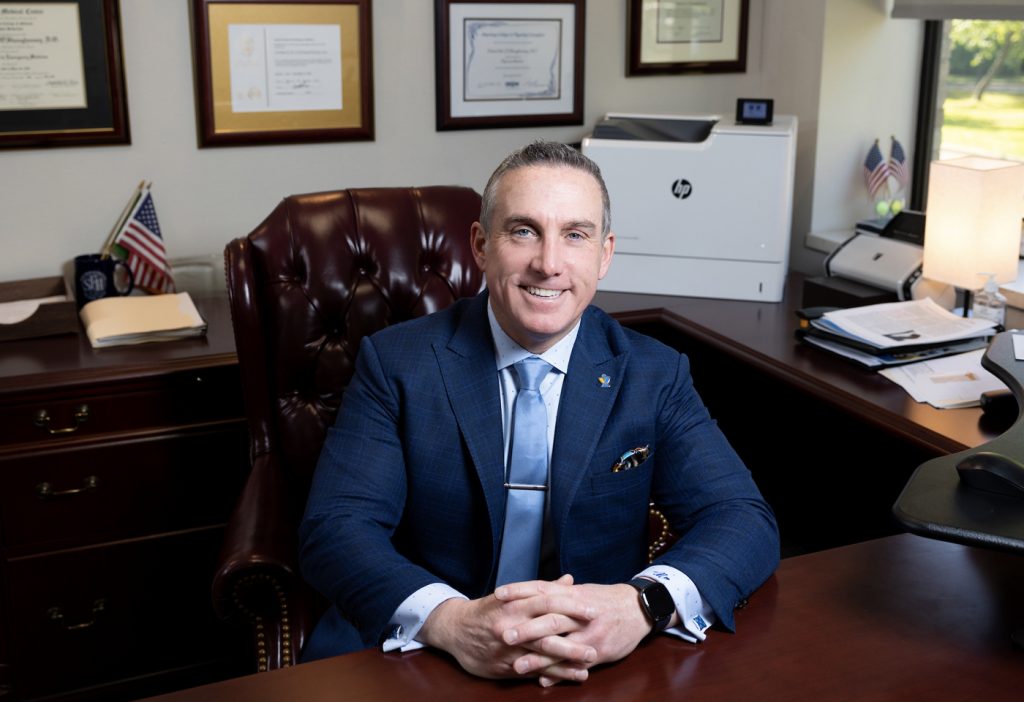
COVID-19 required us to innovate in the healthcare sector to pivot services, not only to advance new vaccines and new therapeutics but also to improve precision medicine, which means individualized treatments.
Healthcare is shifting to focus beyond normal prevention with precision genomics. That means testing your blood and understanding from a genetic perspective what you are at risk for and then intervening before you even develop the disease. Plus, I think many of the therapeutics and vaccines are going to be pivoted to help battle other diseases, like cancer and cardiovascular care. For example, a lot of the research can be used to help treat cancer based on the specificity of your tumor.
At the same time, we can’t lose sight of what we need to do on the social determinants side, such as people who are dealing with food insecurity. We work with food banks to get fresh food out to people and we do a program called Healthy Sundays where we go out with our state-of-the-art Catholic Health mobile vans and screen people to see if they meet criteria for enrollment in a health plan.
While telehealth is not a new concept, during the pandemic, we saw widespread adoption of it. It was long overdue. The other piece is robot technology. You may have a quick question about a medication and we’re going to deploy technology to screen that. A bot could answer a simple question, like are you due to take your medicine or what should the dosage be? If it requires interaction, the bot will automatically route you to a person.
The number-one challenge in healthcare today is human resources. By the year 2030, there will be a shortage of more than 1 million nurses and ancillary healthcare staff professionals—physician assistants, nurse practitioners, radiology techs, laboratory technicians and physicians. There are opportunities in the IT space. We need people to develop new software, to not just think outside the box but to blow up the box, looking at technology-based solutions that could improve the overall health of our population. We also need business leaders because healthcare runs some of the tightest margins in all of business. There are a variety of ways in the business, technology and healthcare human resource sector that I think colleges could help solve some of these problems and educate our future workers.
International Relations
Bharat Bhisé, MBA ’78
CEO and Founder of Bravia Capital
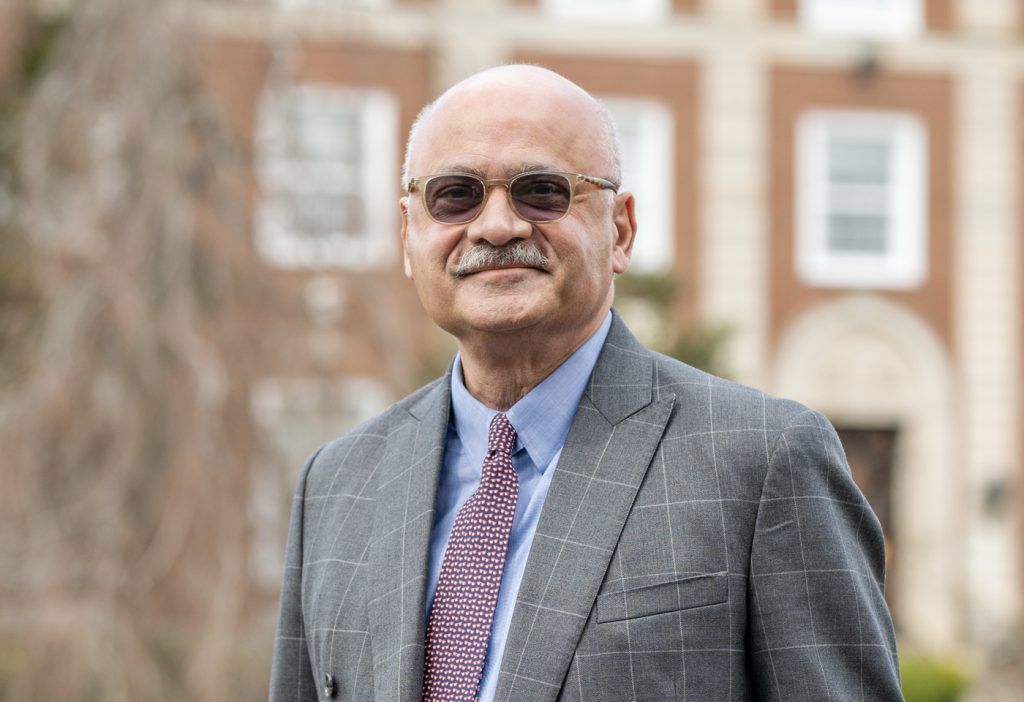
People are finally embracing that we need to address climate change. Most governments in the world, especially the Europeans, have come to realize that we can’t be reliant on oil. It’s absurd that we’re still reliant on fossil fuels and I don’t buy the argument that you can’t go from fossil fuels to solar energy overnight because renewables have widely existed for over 30 years and that the arguments against conversion have focused on the inordinate costs of doing so. The war in Ukraine is going to be a turning point in many countries, since oil-importing countries have realized this is not only a cost issue but supplies can be weaponized. A bigger worry has to do with cleaning our oceans of plastics. But one thing at a time. If we can solve this or at least if we can say in 20 years we’ll have limited or no fossil fuels, I think that’s a phenomenal leap for humanity.
Regarding the recent supply chain issues, it’s important to differentiate between essential and nonessential supply chains. If there is going to be an escalation of the new Cold War, it’s going to be about rare earths, which are critically important to the battery and semiconductor industries, and high-tech products in general. China produces approximately 84 percent of the world’s supply of rare earths. My view is that the Chinese will have to negotiate regarding the rare earths supply chain, because not doing so will cause major unemployment in China. But it’s likely they will withhold the supply of rare earths, which could have a crippling effect on our defense and technology sectors. So, we should start to develop new technologies to counter this possible threat and to start telling our scientists and companies doing development work to see if there are alternative approaches we can take.
In the past 10 years, we have faced many global crises and, in the next 10 years, we are going to face many more. Before making decisions about the right or the wrong side of each situation, the most important thing is to know both the historical background and the facts. If we don’t understand the genesis of the problem, then it’s highly unlikely that we would make the right decision. There are three sides to every dispute: the two opposing sides and the truth. From a geopolitical standpoint, it’s very important to step back and see where all of this started and why this has become a crisis.
That’s important for our young people. When most of their information is coming from technology, they’re not having two-way communication. No matter how much information there is in Google, one needs the ability to ask questions because education is an interactive experience. You can’t learn anything based on Google searches. I believe in hands-on learning and mentorship programs. Universities should use their alumni networks to get students out in the real world to see how things really work and function, because being stuck in theory is not necessarily a good thing.
National Security
Joeanna C. Arthur ’04, PhD
Supervisory R&D Scientist and Senior Staff Scientist With the National Geospatial-Intelligence Agency (NGA)
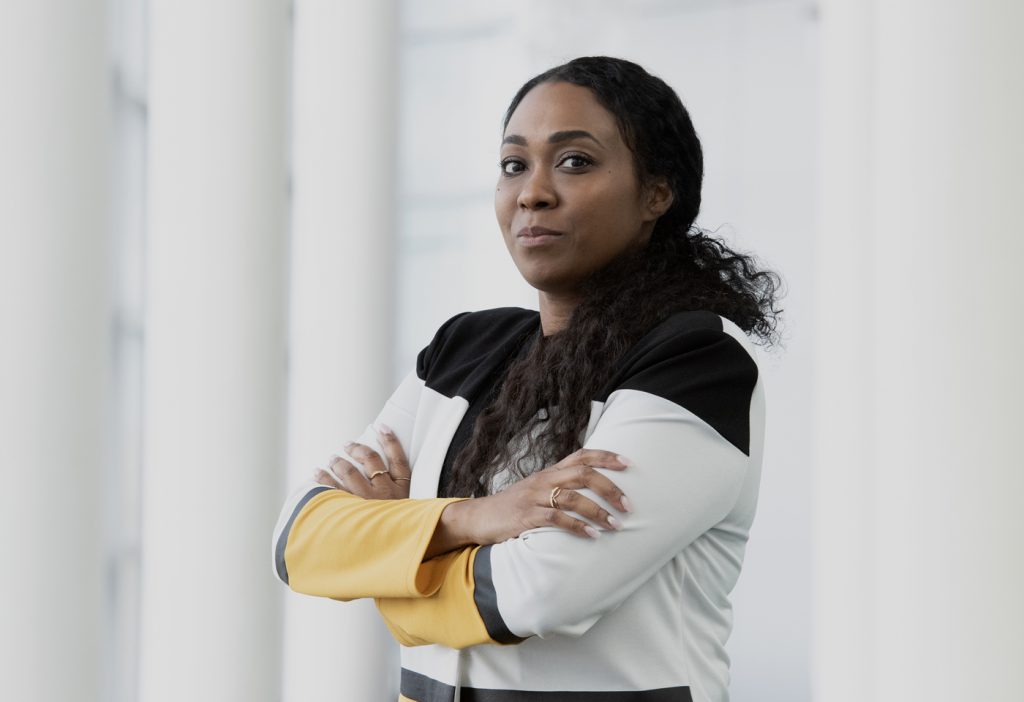
NGA serves as the eyes of the nation, providing timely, relevant and accurate geospatial intelligence (GEOINT) in support of national security.
GEOINT uses mapping or geospatial data, together with imagery from diverse sources including satellites and overhead collectors as well as ground-based and open sources, to describe and depict what is happening, where, on the Earth. The GEOINT NGA provides everything from national security to boots on the ground to humanitarian efforts and recovery after natural disasters.
What’s exciting for our future is the use of artificial intelligence (AI) and machine learning (ML). I think there’s a misconception that AI and deep learning algorithms are not yet in wide use; in fact, many are fully operational and provide valuable intelligence insights. But people forget that AI needs to first be trained by humans; these algorithms are not ready out of the box. Although it doesn’t take you or me long to recognize a tank or car from any angle, AI technology needs tons of data to even begin the image recognition process. It takes a lot of human hours to actually get good, well-labeled data before you may see actual impacts.
Our discipline of GEOINT is rapidly evolving, creating a huge demand for a workforce grounded in STEM skills. We are collaborating with many universities and the private sector to help grow a talent pipeline and create opportunities, especially among underrepresented communities. For instance, we have developmental programs with historically Black colleges and universities, the Deaf and hard-of-hearing communities, and neurodivergent individuals on the autism spectrum.
In addition to STEM, it’s important for students to study the social sciences like anthropology and psychology. From my own specialization in cognitive neuroscience, operational psychology and operational science, I can attest that integrating AI/ML is not just about hardware and software; it requires a human-centric approach. Effective human-machine teaming relies on the human element of GEOINT as much as technology. These tools have to feel intuitive if they are to be adopted into everyday life.
To expand upon that, no matter how technical our mission, I would say it is the diversity and unique perspectives of our individual co-workers and teammates that help us come up with the most creative and innovative solutions for national security. And as with STEM, we should try to catch young people early in their education, inspiring them to pursue fields they might not have considered, such as geospatial sciences or data science. We can help them envision an entire world of possibilities.
Politics
Gregory W. Meeks ’75
U.S. Representative in New York’s 5th District
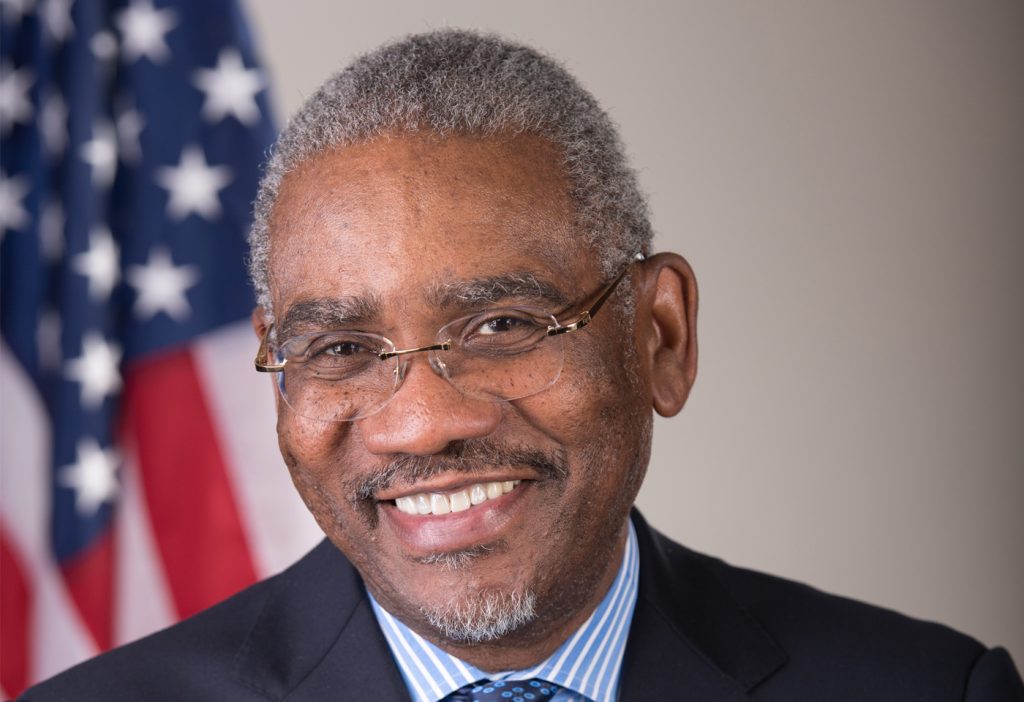
The challenge always in Congress is making sure you develop relationships with individuals who are either not from the same region or not even from the same party so we can pass legislation—like what I found when we were talking about community development financial institutions (CDFIs): legislation that was important to get done for the inner cities but also for rural America. By finding the things we had in common and working together, we were able to pass, in a bipartisan way, bills that stabilized and helped CDFIs and minority development institutions (MDIs). The ability to compromise and to listen to people, especially people who are not similar to you, is the quality of leadership you need in government, if you’re going to get things done.
Social media and the 24-hour cable news shows have changed politics. The world is more interconnected and interdependent than ever. As a student at Adelphi, I learned to do my own research and then add my thoughts and ask questions. That’s how we can help get through disinformation and misinformation that causes division and that makes it hard to communicate to get something done. We are leaning toward becoming more multilateral and multicultural so that we can understand the rest of the world, and not think that only the United States of America is superior to other countries and other cultures. We need to take and utilize to our advantage that we are the greatest experiment that this planet has ever seen, because people from all over the world come here. If there’s a financial crisis in one part of the world, it’s going to affect another.
When you see what took place with this pandemic, you know that if there is a virus that’s going around, it’s not just isolated. It’s going to be everywhere. We better figure out how to solve problems together. From different parts of the world and different nationalities and different ethnicities, we need each other. Adelphi does that by becoming a much more diverse campus. It helps people to get to know, learn, respect and work with one another.
Sometimes people think politics is about voting and that’s it. Voting is only the beginning of what you do. That’s how you make government better. That’s how you make change. Then the involvement happens and then the advocacy takes place. Don’t get turned off by politics. The person who is dissatisfied and upset is the person who should make sure to get involved because if you’re standing on the sidelines, you’ll never be able to resolve anything.